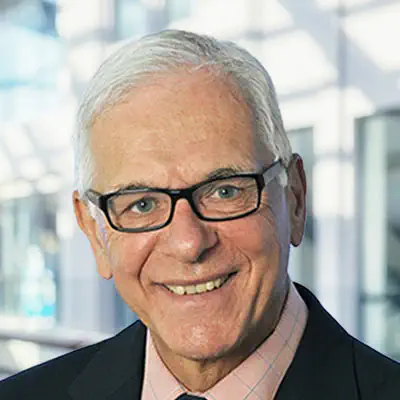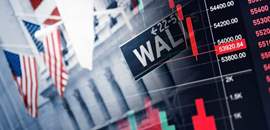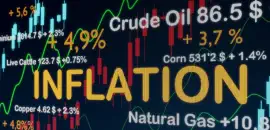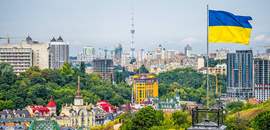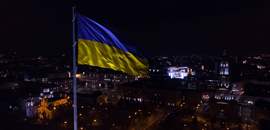Europe Faces an Uncertain Economic Outlook
Many observers believe Europe’s economy is already in a recession that will deepen this winter. This forecast may have to be modified, however, as prices for natural gas have fallen unexpectedly to pre-Ukraine war levels.
This surprise has caused forecasters to scramble to discern why it is happening and whether it will persist.
There is general agreement about one of the factors contributing to the price decline: the spike in energy prices in the wake of Russia’s invasion of Ukraine weakened the global economy, which then lowered global demand for crude oil and natural gas.
In addition, Europe has taken significant steps to conserve natural gas and other forms of energy. A Financial Times article documents sacrifices that European countries are making to limit the fallout of Russia’s squeeze. They include reducing sauna visits in Finland; dimming lights and lowering temperatures in public areas in Germany, France, Austria and other countries; and reverting to ways of conserving energy used in Eastern Europe during the Soviet era. Businesses and households also have substituted other sources of energy, including coal in Germany, nuclear power in France and wind power throughout the EU.
All told, estimates of the reduction in natural gas usage across Europe were around 15% in the second half of 2022, which is in line with the commitment EU governments made in July.
U.S. Increased Exports of LNF to EU and UK
The main supply side factor has been stepped up imports of liquefied natural gas (LNG). The principal supplier has been the United States, which has emerged as the world’s largest exporter of LNG. According to the Energy Information Agency, nearly two thirds of U.S. LNG exports in the first half of 2022 went to the EU and the United Kingdom (UK).
These shipments were enabled by a significant increase in import capacity of the EU and UK that is projected to expand by one third by 2024 compared to 2021. European countries have reactivated development of previously dormant regasification facilities at existing terminals, and they have implemented upgrades since Russia’s invasion of Ukraine.
Unusually Warm Winter Helps Ease Europe’s Energy Woes
Another critical factor has been luck. Europe has been experiencing unusually warm weather since October, with temperatures in the northwest region nearly 8.5 degrees Celsius above the long-term average. Javier Bias of Bloomberg reports that reduced energy demand from warmer temperatures could be 13% below the 30-year average. This has allowed European countries to build energy storage to 83% of capacity, which is 30 percentage points above 2021 levels.
The impact of lower gas costs, softer demand and increased reliance on alternatives is particularly apparent on electricity prices, which have plummeted. For example, German prices, which soared in August, plunged into negative territory recently. This means producers had to pay consumers to dispose of their electricity generation.
The big unknown, of course, is how long the warm spell will last. The good news is that Europe will soon be halfway through its heating season. Nonetheless, prices could spike quickly if weather turns colder, and some commodity analysts anticipate that 2023 will be another strong year for commodities as demand for energy resumes while supplies tighten.
In its 2023 commodities outlook, Goldman Sachs predicts that, “Despite the recent price declines, commodities will likely finish the year as the best performing asset class.” It predicts commodity prices will surge by 43%.
So, where does that leave Europe now? My take is that whatever happens to natural gas prices, Europe has received a much-needed respite to make it through the winter. This should enhance the chances that a recession will be mild. But, this does not mean Europe should rest on its laurels, as problems could unfold ahead.
What has happened is testimony about how the adjustment process works in market-oriented economies. When energy prices spiked after Russia’s invasion, energy demand softened and households and businesses substituted away from natural gas to cheaper energy. In the process, prices for crude oil and natural gas have reverted to their pre-shock levels after the respective economies took hits.
The Clear Loser is Russian President Vladimir Putin
On the political front, these developments will serve to strengthen Europe’s resolve against Russian aggression. The clear loser is Russian President Vladimir Putin. He not only confronts Russian troops being out maneuvered by the Ukrainian resistance on the battlefield, but also sees his strategy of forcing Ukraine and Europe to endure a harsh winter crumbling.
A version of this article was posted to TheHill.com on January 5, 2023.
This publication has been distributed for informational purposes only and should not be considered as investment advice or a recommendation of any particular security, strategy, or investment product. Opinions expressed in this commentary reflect subjective judgments of the author based on the current market conditions at the time of writing and are subject to change without notice. Information and statistics contained herein have been obtained from sources believed to reliable but are not guaranteed to be accurate or complete. Past performance is not indicative of future results. No part of this publication may be reproduced in any form, or referred to in any other publication, without express written permission of Fort Washington Investment Advisors, Inc.













